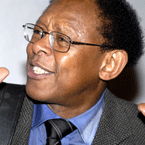 This week in systematic theology we talked about baptism, which of course I don't have a lot of specific experience with. It was interesting to hear more about the theological meaning behind baptism and that sort of thing, and sparked questions for me.
This week in systematic theology we talked about baptism, which of course I don't have a lot of specific experience with. It was interesting to hear more about the theological meaning behind baptism and that sort of thing, and sparked questions for me.First of all, as Quakers, we don't do baptism physically--but do we replace it with anything? Do we practice it in a spiritual sense at all? My husband said that at his meeting growing up they have little kids come up and they ask for baptism of the Holy Spirit, and kind of dedicate that child to God and commit as a community to be a helpful part of that child's spiritual growth. My home meeting has baby dedications, where babies or young children are dedicated to God and the community pledges to help them grow up in God. These are similar to infant baptism, I guess.
This brings me to the next question: what's the point of baptism, and are we as Quakers fulfilling that in some other way? Some theologians say the point of baptism is an initiation into the community of faith, being grafted into the Vine of Christ as part of the family of God. Calvin compares baptism to circumcision in Judaism, where babies (at least male ones) are brought into the covenant with God before they're old enough to make that conscious choice. It's an act of faith by the community, and it shows that community's intention.
I never really understood infant baptism before, and if I believed in baptism I would have been more for believers baptism, where the person makes a conscious choice and professes that before God and others. But Calvin's point makes some sense. And he also says that since the use of water is just a ritual and doesn't do anything (he actually says that, which I could agree with whole-heartedly!), baptising an infant is something that can help retain the mystery of the sacraments, because the child can't think of this as some magical formula that's going on, but the child can experience the presence of God.
Tillich makes some interesting points as well. He says that the sacraments are symbols which help us experience the infinite in unconscious ways. We can't just experience the Spiritual Presence (as he calls God) through intellect, we need tangible stuff, the stuff ordinary life is made of, and anything can be a sacrament (provided it doesn't go against what we believe). Here he sounds almost Quaker, in the historical sense, where Quakers used to say that all of life is a sacrament, and that we should live sacramentally, seeking to experience God through all things rather than just in special moments presided over by a priest.
But I think Tillich adds to the Quaker understanding, at least in the way we don't practice sacraments today: we forget that humans are very tactile and symbolic beings. What do we do that actually connects us to the divine through physical symbols? How do we allow God to impact us unconsciously through our bodies, not just our minds? Have we made ourselves too intellectual and not spiritual enough, no matter how mystical others call our religion?
So the things I picked up from all this as the important concepts in the ritual of baptism are: in the case of infant baptism, dedication to God and initiation into the community of faith; for believers baptism, professing belief before others and making a conscious choice to follow Christ; for baptism in general, having a physical experience with which to connect the spiritual reality of the presence of God in one's life.
How do we do this as Quakers? Do we do anything to state out loud our commitment to God? Do we get our physical selves involved in our spiritual life, and is this important? Although we talk about the important thing being the baptism of the Holy Spirit, do we expect this as a reality for each person, do we look for it, and do we do anything to acknowledge when it happens? How are we living our lives sacramentally as a community of faith?
P.S.
Funny story about Quakers and baptism:
My grandpa was in Israel a while back with a bunch of his students, and they came to the Jordan River on their tour bus. Some of the students wanted to be baptized in the Jordan (since that's where Jesus was baptized). So they asked if anyone on the bus was an ordained minister who would be willing to baptize people. He spoke up and said, "Well, I'm a Quaker, and Quakers believe we're all ministers, so as far as Quakers ordain people, I'm an ordained Quaker minister--of course we don't actually do water baptism..." The students decided that was good enough and so he baptized a bunch of people in the Jordan River!
